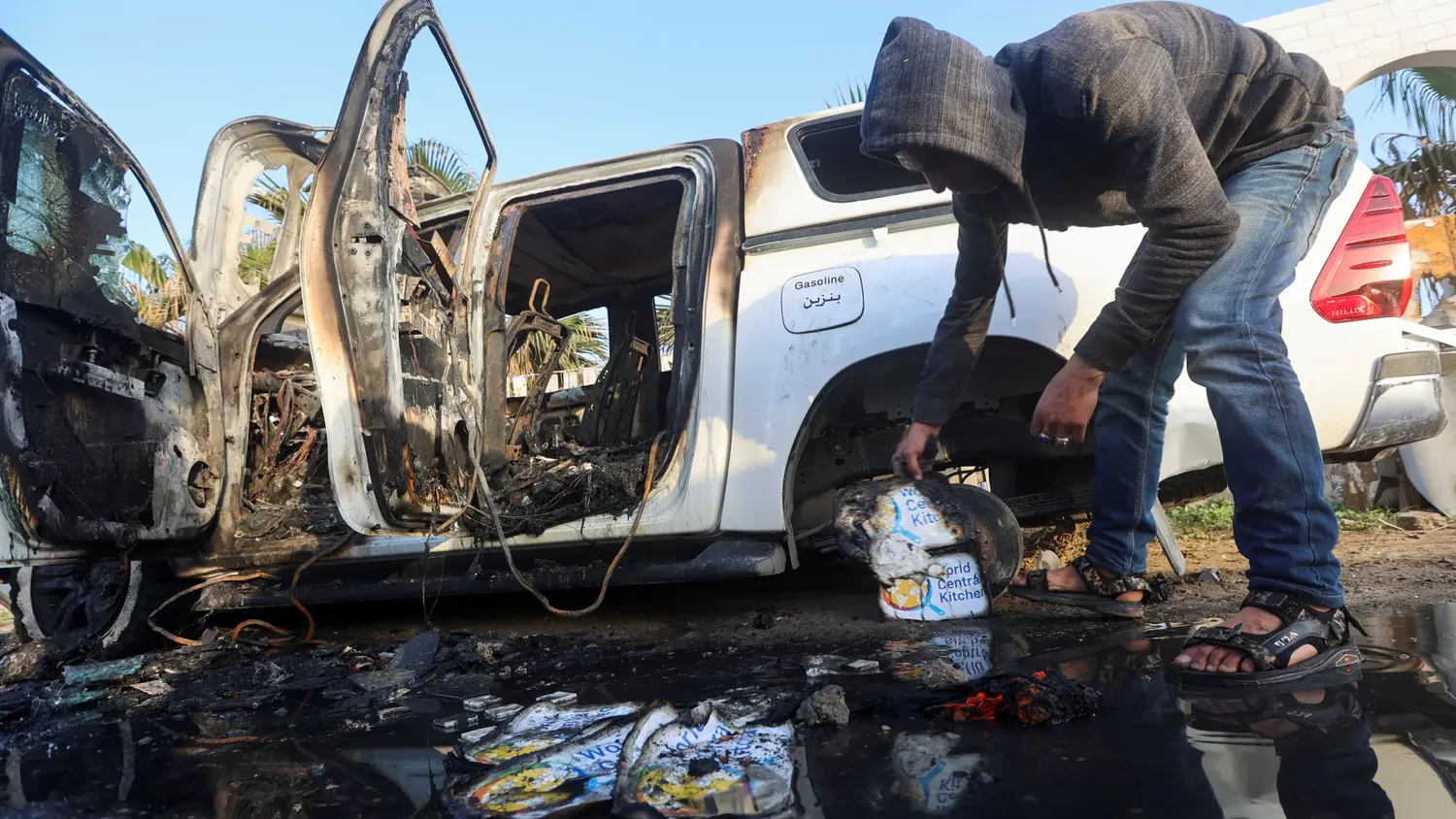Israel-Gaza War
Israeli Drone Attack Kills 7 Aid Workers in Gaza
In a significant blow to humanitarian efforts in the Gaza Strip, several charities have announced the suspension of their operations following a drone attack that resulted in the deaths of seven aid workers. The strike, which has prompted an international outcry, has further exacerbated the dire humanitarian situation in the region, where the population is already on the brink of famine.
The attack occurred as a convoy from the World Central Kitchen (WCK), a charity known for its work in providing meals in disaster-hit areas, was delivering food supplies in Gaza. The convoy, consisting of three vehicles, was targeted, leading to the deaths of aid workers, including nationals from the United Kingdom, Australia, Poland, and a dual citizen of Canada and the United States.
The WCK, along with other aid organizations such as Anera and Project Hope, has stated that the escalating risks associated with aid delivery have left them with no choice but to halt operations to ensure the safety of their staff. This decision, described as an 'unprecedented step' by Anera, underscores the severity of the situation and the challenges faced by humanitarian groups in the region.
The flotilla of aid ships organized by WCK had arrived in Gaza from Cyprus earlier that day, carrying approximately 400 tons of food and supplies. This was the group's second shipment after a successful pilot run the previous month. The Israeli military had been involved in coordinating both deliveries, and the United States had praised the sea route as a new method to deliver much-needed aid to northern Gaza.
However, the attack has cast a shadow over these efforts, with Israel barring the main UN agency in Gaza, UNRWA, from making deliveries to the north, citing the involvement of some UNRWA staff in the October 7 attacks on Israel. Other aid groups have also reported that sending truck convoys into northern Gaza has become too dangerous.
The UN-backed global authority on food security had warned last month that famine was likely to occur by May in northern Gaza. The Israeli government, which declared war on Hamas following the October 7 militant attacks that saw 1,200 people killed and some 250 kidnapped, believes that approximately 130 captives remain in Gaza. More than 32,000 Palestinians in Gaza have been killed during Israel's military response since then, with health officials in the territory reporting that most of the victims are women and children.
The strike on the WCK staff has been blamed on Israel by the Hamas-run Gaza government media office, while the Israeli military has stated that it is investigating the source of the strike, which could not be independently confirmed. The IDF has emphasized that it makes extensive efforts to enable the safe delivery of humanitarian aid and has been working closely with WCK in their efforts to provide food and humanitarian aid to the people of Gaza.
The international community has reacted with concern to the attack on humanitarian workers. Australian Prime Minister Anthony Albanese expressed his concern about the loss of life in Gaza and reiterated his government's support for a sustainable ceasefire and the release of hostages. The attack has been condemned as an attempt to 'terrorize' workers of international humanitarian agencies and deter them from their mission of providing relief to those in need.
As the situation in Gaza continues to deteriorate, the suspension of aid by these charities is likely to have severe consequences for the Palestinian population, which is already facing catastrophic levels of hunger. The international community is now faced with the urgent task of ensuring the safe delivery of humanitarian aid to those in need while addressing the security concerns that have led to this tragic incident.

